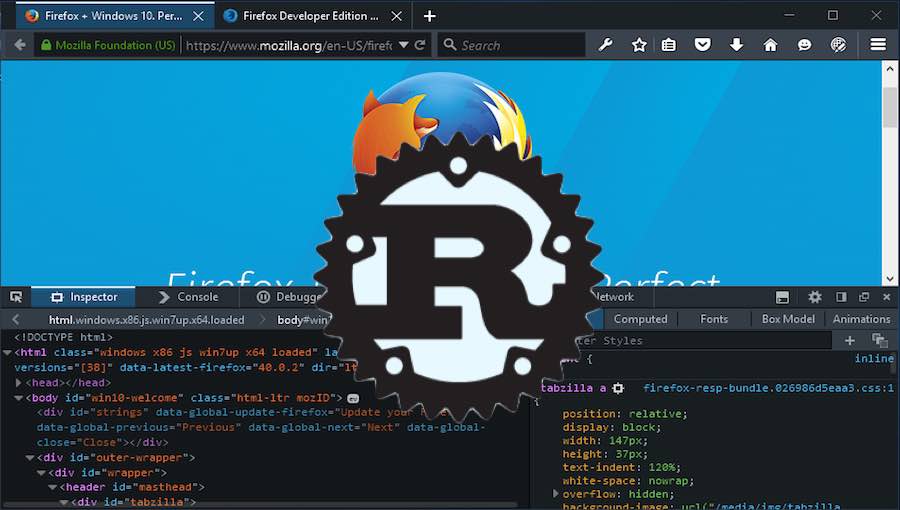As mentioned, Firefox has always been a fast web browser, and the latest iteration may be the fastest on the market. It also boasts an intuitive and well-organized UI, which makes navigating easy and enjoyable and really lets you get the most out of the fast page loads and transitions. After its most recent series of updates, Firefox is slowly regaining its position as one of the most popular web-browsers. The newest version of Firefox puts a premium on user privacy. For users who are hesitant to trust Google’s Chrome browser with their data, this is a huge advantage. Mozilla Firefox (64bit) Latest Version 1 Next Last; Mozilla Firefox (64bit) 87.0. Mozilla Corporation - 54.2MB Freeware. This is a version of Firefox which is 'locked' at a major release version, as opposed to a version of Firefox which just updates itself to the very latest version available. The ESR Version of Firefox won't receive any new features and will continue to work in the existing, expected way. Find the latest Firefox news from WIRED. See related science and technology articles, photos, slideshows and videos.
Firefox Enterprise offers MSI installers per locale, per cpu architecture (32 and 64 bit) and per channel to help system administrators customize and deploy Firefox in their environments.The MSI installer (supported on Windows 7 and later versions) is a wrapper of the exe full installer that allows customizations through the use of a MST file prior to deploying through standard Windows deployment tools such as Active Directory or Microsoft System Center Configuration Manager.
Table of Contents
- 2Configuration options
- 3MSIEXEC options
- 4Example configuration
Visit https://www.mozilla.org/firefox/all/ and use the drop-down options to select a MSI installer for Firefox Nightly, Developer Edition, Firefox Beta, Firefox Release or Firefox Extended Support Release.

MSI transforms (MSTs) for the Firefox MSI installers can be created or edited using the tool of your choice (MS Orca or other) to customize the installation. This section details the options available.
Firefox custom MSI options
Set a directory path - INSTALL_DIRECTORY_PATH=[path]Absolute path specifying the complete install location. This directory does not need to exist already (but it can).If INSTALL_DIRECTORY_NAME is set, then this setting will be ignored.
Set a directory name - INSTALL_DIRECTORY_NAME=[name]Name of the installation directory to create within Program Files. For example, if INSTALL_DIRECTORY_NAME is set to Firefox Release, then the installation path will be something like C:Program FilesFirefox Release. The Program Files path used will be the correct one for the architecture of the application being installed and the locale/configuration of the machine; this setting is mainly useful to keep you from having to worry about those differences.If this is set, then INSTALL_DIRECTORY_PATH will be ignored.
Install a taskbar shortcut - TASKBAR_SHORTCUT={true,false}Set to false to disable pinning a shortcut to the taskbar. true by default. This feature only works on Windows 7 and 8; it isn’t possible to create taskbar pins from the installer on later Windows versions.
Install a desktop shortcut - DESKTOP_SHORTCUT={true,false}Set to false to disable creating a shortcut on the desktop. true by default.
Install a start menu shortcut - START_MENU_SHORTCUT={true,false}Set to false to disable creating a Start menu shortcut. true by default.
Disable the maintenance service - INSTALL_MAINTENANCE_SERVICE={true,false}Set to false to disable installing the Mozilla Maintenance Service. This will effectively prevent users from installing Firefox updates if they do not have write permissions to the installation directory. true by default.
Disable removing distribution directory - REMOVE_DISTRIBUTION_DIR={true,false}Set to false to disable removing the distribution directory from an existing installation that’s being paved over. By default this is true and the directory is removed.
Latest Firefox Browser
Prevent rebooting - PREVENT_REBOOT_REQUIRED={true,false}Set to true to keep the installer from taking actions that would require rebooting the machine to complete, normally because files are in use. This should not be needed under normal circumstances unless you’re paving over a copy of Firefox that was running while the installer was trying to run, and setting this option in that case may result in an incomplete installation. false by default.
Bundle extensions - OPTIONAL_EXTENSIONS={true,false}Set to false to disable installing any bundled extensions that are present. true by default.
Application files extraction directory - EXTRACT_DIR=[directory]Extract the application files to the given directory and exit without actually running the installer. Of course, this means all other options will be ignored.

The command line parameters for msiexec.exe (the Windows component responsible for installing, uninstalling, and otherwise working with MSI files) are documented here and also by the output of the /? option. Our MSI packages, because they wrap a .exe installer and don't really use the MSI framework, do not support many of the command line parameters available to msiexec. This document lists the msiexec parameters that are supported and unsupported for use with our MSI packages.
Supported MSIEXEC Options
- /i or /package
- Installs the product.
- /L or /log
- Generates an MSI log file. All of this option's configuration parameters are supported.
- /m
- Generates an SMS status .mif file.
- Without having a copy of Systems Management Server I've been unable to test this, but it should work.
- /q, /quiet, and /passive
- Sets the UI mode. The full UI option (/qf) is accepted but ignored, because we have no full UI.
- /norestart, /forcerestart, and /promptrestart
- The default behavior is always /norestart, but the other options behave as expected.
- PROPERTY=VALUE
- Command line property configuration is supported for all public properties we provide (meaning the ones with UPPERCASE_NAMES).
Options that do not operate on a package file (/?, /h, /help, /y, /z)

Unsupported MSIEXEC Options
Latest Firefox Logo
- /f
- Repairs the product.
- /a
- Administrative installation.
- /x or /uninstall
- Uninstalls the product.
- /j along with /t, /g, and /c
- Advertises the product.
- /n
- Specifies a particular instance of the product.
- /p or /update
- Applies a patch (.msp) file.
Here’s an example of a valid .mst file to help understand how options can be changed along with the MSI directory for mozilla central:
There are several ways to use the MSI file with configurable parameters exposed in Firefox MSI:
By using an external MSI editor (e.g. ORCA)
- File/Open and select the MSI to be edited.
- Find the Property table and select it.
- Change the values for the PROPERTIES you need to.
- From ORCA, select File/Save as and save the custom modified MSI installer.
By using a transform (.mst) configuration
- Use Orca to open the MSI.
- Select Transform > New Transform from the menu bar.
- Change the values for the PROPERTIES you need to.
- Select Transform > Generate Transform to save your changes as a transform (.mst) file.
- Run: msiexec /i “Firefox.msi” TRANSFORMS=”custom.mst”
By using command line parameters
- Rename the Firefox MSI file as default.msi
- Move the file in a C:MSI directory
- Run:
- msiexec.exe /i 'c:MSidefault.msi' INSTALL_DIRECTORY_PATH='C:Firefox' TASKBAR_SHORTCUT=false DESKTOP_SHORTCUT=false INSTALL_MAINTENANCE_SERVICE=false /quiet
Cookies were introduced to the web many, many years ago. Initially was deemed as a useful feature which allowed websites to remember certain things about you and your browsing activity so that in some instances, you wouldn’t need to start from scratch everytime you loaded that website.
However, while cookies are still useful, these days we’re seeing how companies are using these cookies to track your activity and use that data to serve up personalized ads, which can feel a bit invasive. The good news is that Mozilla has been working on trying to limit what cookies can do, and in Firefox 85, the company is clamping down on the use of what is known as supercookies.
Supercookies are essentially cookies, but are “hidden” which means that even if you clear your cache and browsing data, there is a chance that these supercookies will continue to remain. With Firefox 85, Mozilla will be clamping down on the use of the feature by isolating them. This is done by partitioning caches used by top-level sites, such as HTTP cache, image cache, favicon cache, HSTS cache, OCSP cache, style sheet cache, font cache, DNS cache, HTTP Authentication cache, Alt-Svc cache, and TLS certificate cache.
Ultimately, this feature should prevent supercookies from being abused, but not destroying their functionality altogether. If you value your privacy, then perhaps Firefox 85 might be worth checking out.
Filed in . Read more about Firefox, Mozilla and Privacy. Source: blog.mozilla.org




